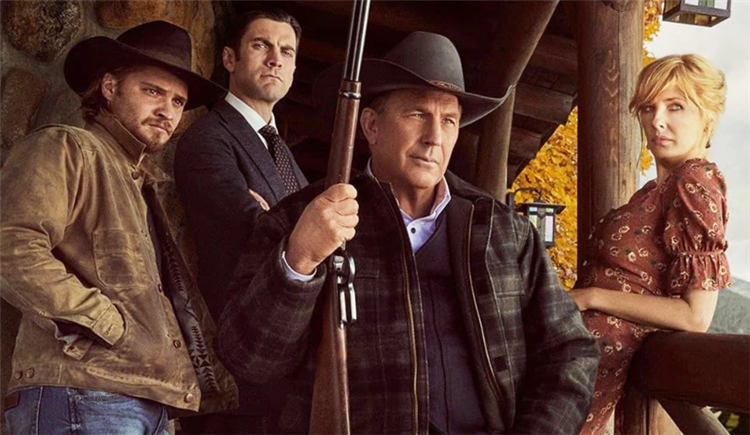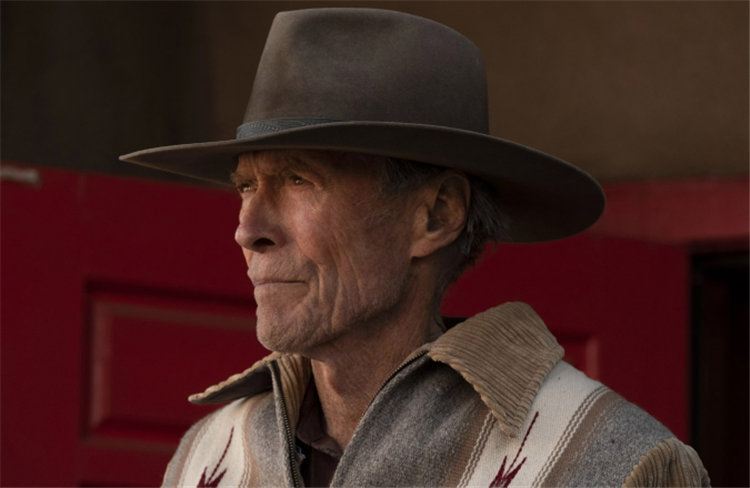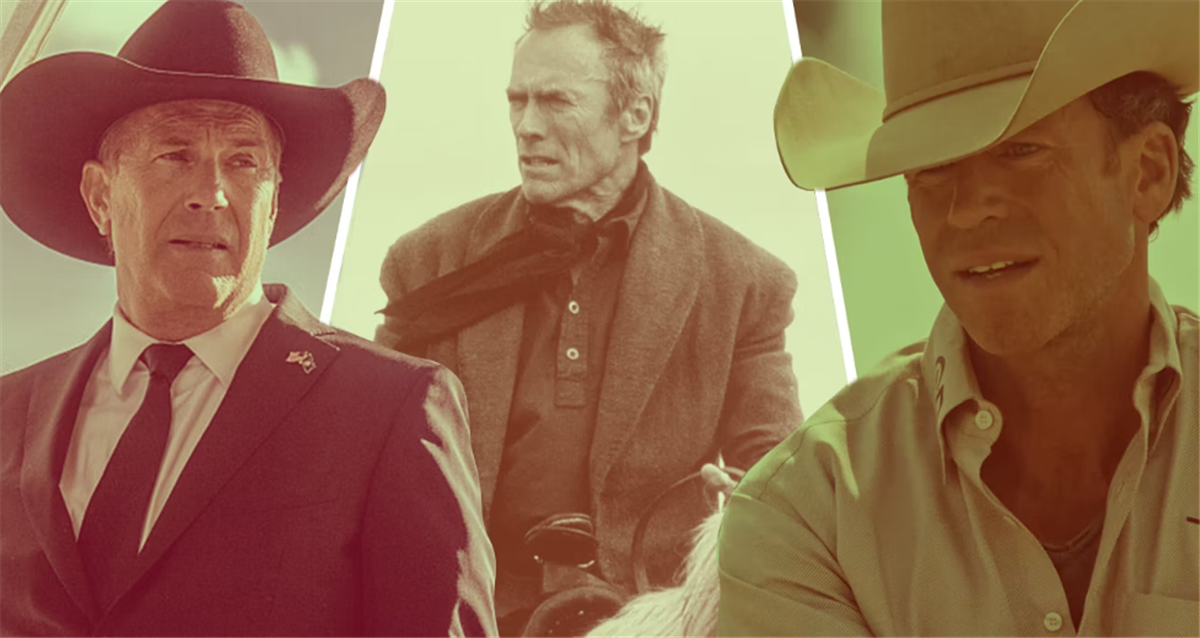Taylor Sheridan has created a sprawling universe with the Yellowstone franchise, and one of Clint Eastwood’s finest films helped inspire the series.
This may be controversial, but before Taylor Sheridan burst onto the scene, the Western genre was nearly dead. If not that, then it was close to it. Excluding Yellowstone or any other Sheridan-written story, many would have been hard-pressed to name more than 10 great Westerns made within the last decade. At least not as great as they were during the genre’s prime. Now, the Western is essentially being held on the back of a TV series just entering its final year. At least we’ll have the spin-offs, though.
However, like all great TV shows, movies, novels, etc., nothing is made without inspiration. Long before Kevin Costner was barking orders on a ranch in Montana, Clint Eastwood was wandering the arid parts of the Wild West, dropping bodies and collecting bounties. One of Eastwood’s best was under his own direction as an outlaw facing a crooked lawman in a classic film that put the perfect cap on his Western career. It’s no surprise the Oscar-winning movie has inspired many projects that have come after it, including Yellowstone. Here is how the Western thriller Unforgiven inspired Taylor Sheridan to create Yellowstone.
Clint Eastwood’s Western Masterpiece, Unforgiven
In the Wyoming town of Big Whiskey, an act of violence is perpetrated against local prostitutes that leaves one horribly disfigured. Most would associate such crimes with the outlaws and vagrants who haunt towns like these, but the crime was committed by cowboys. Sheriff “Little Bill” Daggett (Gene Hackman) refuses to do anything about it, so the prostitutes put a bounty out for the men who victimized their friend.

In comes William Munny, a reformed killer who left his sinful way behind long ago for love. But his wife is gone now. With no way to care for his children, Bill must return to the way of life he abandoned, for it’s the only thing he was ever good at. So he calls in his old friend Ned Logan (Morgan Freeman) and the inexperienced gunman “Schofield Kid” (Jaimz Woolvett) to help him, but what follows is no ordinary Western. Unforgiven is undoubtedly one of Clint Eastwood’s best films, which still holds up today. It’s one of the best Westerns of all time, and ironically, it doesn’t even follow the familiar tropes of the genre.
For most of Eastwood’s career, he’s played individuals who fight for what’s right in the form of cowboy justice. There are vicious outlaws, Native Americans, and plenty of gunfights, but things typically always play out as one would expect. It’s always white hats against black hats, where the noble white hat-wearing heroes work to save the damsels, and black-hat crooks rob banks and train cars.
What Unforgiven does is turn that whole narrative on its head. The white hat characters are the villains, using their authority for selfish gain, while the black hats use their aversion to the law to bring justice to those that no one else will. Unforgiven redefined the West with an incredible cast and dark themes of violence and forgiveness. Nothing is black and white in this film, and it makes it a lot easier to see how Taylor Sheridan was inspired by the many shades of gray presented.
Unforgiven Was a Big Influence on Yellowstone
When watching Unforgiven and Yellowstone, fans might notice a few similarities other than Western themes and cowboys. The show is full of shades of gray. Events play out through the Dutton’s perspective as majestic and righteous. The heroic cowboys protect their way of life against the greedy corporate giants who pull every trick in the book to seize their ranch. But fans know it’s not always easy to root for the Duttons. After all, how can they be heroes when they insist on using mafia-like tactics?
Taylor Sheridan discussed his inspirations with Sridhar Pappu in an interview for The Atlantic. He said that he specifically wanted his show to tell a story focusing on real consequences rather than upholding the myth of the American West, a concept that Sheridan applauds Unforgiven for shattering.
So when I stepped into that world, I wanted there to be real consequences. I wanted to never, ever shy away from, ‘This was the price.’ – Taylor Sheridan
Sheriff Daggett, a man expected to be righteous in upholding the law, fails to hold cowboys accountable for their crimes. He can’t be bothered to help local prostitutes and would much rather keep things easy for himself, forcing the prostitutes to turn to killers for justice. Clint Eastwood’s masterful storytelling successfully flipped the Western on its head by never shying from consequences. Munny, a man with a lifetime of blood on his hands, knows what he is and knows he’s owed the same fate he plans to dish out.
Near the film’s conclusion, after all the guilty parties are slain, the remorseful Schofield Kid tearfully justifies what he has done by uttering one of the pictures refrains: “I guess they had it comin’,” to which Munny replies, “We all got it comin’, kid,” an acknowledgment that the justice inflicted still doesn’t wash out the blood on his own hands. As this statement highlights the morally gray reality of the characters’ choices, so too does it for the overlords of the Yellowstone ranch. This is what Sheridan deems as responsible storytelling akin to Breaking Bad and The Sopranos. The main protagonists are morally gray anti-heroes who lead duplicitous lives, often suffering from the consequences of their indiscretions.
Yellowstone Features a Family of Cowboys and Outlaws

Since the start of Yellowstone, the Duttons have gained fans’ adoration and their ire for their tactics and treatment of each other and others. Set against a beautiful Montana backdrop, their exploits and everyday lives look like a Western dream. However, once that’s stripped away, the patriarchal cowboy dynasty starts to look more similar to the Mafia.
For the freedom and the life they fight for, the family goes to great and sometimes dark lengths to keep the Yellowstone ranch. Rip coerces a depressed drug addict into suicide to bury evidence in the series’ second episode. An episode later, John lets a fired ranch hand be killed to keep his secrets. Beth is given the autonomy to destroy any and every one necessary, and Jamie kills a reporter to protect his father.
John at least tries to have a moral compass and lambasts his children for their actions, but he is the worst of all and is emotionally abusive to his own kids when they displease him, even to the point of driving his youngest, Kayce, away for a whole decade. Jamie is stymied at every chance to advance his career by John, simply to keep him from succeeding. In these actions lie the consequences. No crime is perpetrated on behalf of the Duttons that doesn’t return to them in some way, whether it be investigations or ghosts from the past.
The biggest ghost is Jamie, who, after years of being victimized by his sister and degraded by his father, has now openly turned against his father and may very well be planning to have Beth killed if a cryptic line about hiring professionals is anything to go on. How much chaos and bloodshed is worth the preservation of a lifestyle that time has largely left behind? If Yellowstone is responsible storytelling, what costs will there be at the end of a never-ending land war?
